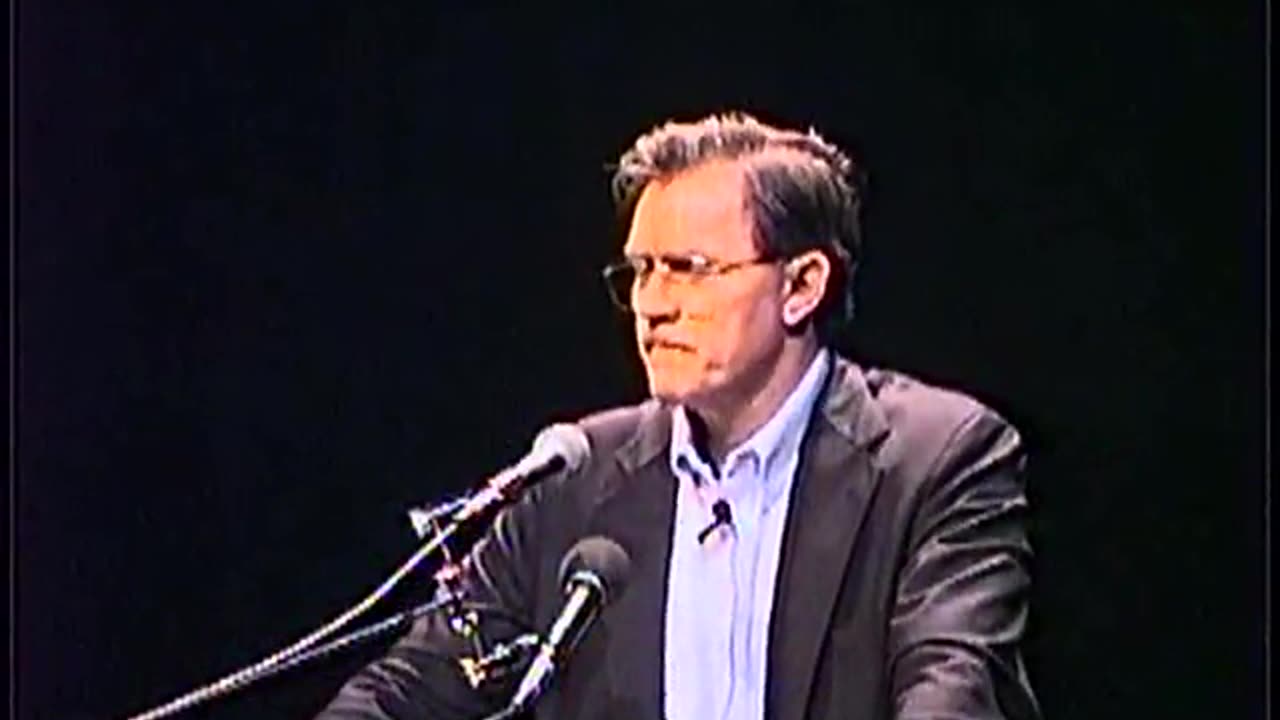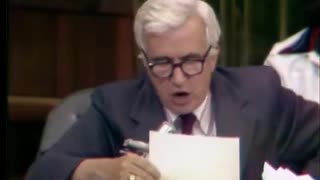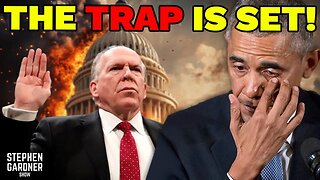Premium Only Content

The Never-Ending Wars: Former CIA Officer John Stockwell (1992)
John Stockwell was a former CIA officer turned whistleblower, known for his outspoken criticism of U.S. foreign policy and the covert operations of intelligence agencies. His insights into global events were shaped by his experiences within the CIA and his subsequent disillusionment with its operations.
In 1992, the world was undergoing significant transformations. It was a year marked by critical geopolitical shifts, following the end of the Cold War. The dissolution of the Soviet Union in 1991 had reshaped global politics, leading to a new era of power dynamics and international relations. Nations across Eastern Europe were navigating transitions from socialist systems to varying forms of governance, embracing democracy and market economies.
In the United States, 1992 was an election year that saw Bill Clinton winning the presidency, ushering in a period of optimism and change. The world was also witnessing the aftermath of conflicts in the Balkans, particularly the Bosnian War, which highlighted ethnic tensions and the challenges of international intervention.
Economically, globalization was gaining momentum, with the establishment of the European Union and the signing of the Maastricht Treaty in 1992, solidifying economic and political cooperation among European countries.
John Stockwell's perspectives during this time revolved around the implications of the post-Cold War era. He commented on the role of intelligence agencies in a changing world, the challenges of adapting to a new geopolitical landscape, and the potential risks and opportunities arising from the reconfiguration of global power structures.
Stockwell also discussed the need for transparency and accountability in international relations, especially in the context of emerging conflicts and the evolving role of the United States in a post-Soviet world.
His insights added a critical dimension to understanding the complexities of global politics and the CIA's role in navigating the shifting dynamics of the early 1990s.
-
 3:50:14
3:50:14
The Memory Hole
6 months agoNixon Impeachment Hearings Day 2 (1974-07-24)
1.2K -
 21:53
21:53
Glenn Greenwald
3 hours agoMichael Tracey on the Street: What Do People Think of the Epstein Case?
70.2K27 -
 LIVE
LIVE
DamnDanieI
1 hour agoKill First, Loot Later – OTG Live
503 watching -
 LIVE
LIVE
SpartakusLIVE
2 hours agoDuos w/ @GloryJean || #1 Masculine Muscle MASS sears YOUR retinas with MIND BENDING content
163 watching -
 56:41
56:41
Donald Trump Jr.
5 hours agoLies, Leaks, and Lawfare: Censorship Corruption Exposed | TRIGGERED Ep.263
98.9K99 -
 1:26:13
1:26:13
Mally_Mouse
3 hours agoLet's Hang!! -- P.O. Box & Chill!
1.54K -
 1:02:37
1:02:37
BonginoReport
4 hours agoKamala Teases Book About Dumpster Fire Campaign - Nightly Scroll w/ Hayley Caronia (Ep.102)
47.3K34 -
 35:05
35:05
Stephen Gardner
4 hours ago🔥Obama will be FORCED to Testify in Trump trial?
11.1K23 -
 9:08
9:08
Tundra Tactical
1 hour agoTundra Tactical Political Memes Review!
4.46K -
 LIVE
LIVE
GloryJean
1 hour agoDuos w/ Spartakus 🔥 LOCK IN for Games w/ PASSION
18 watching